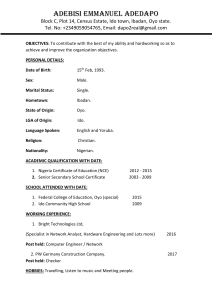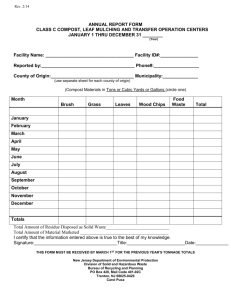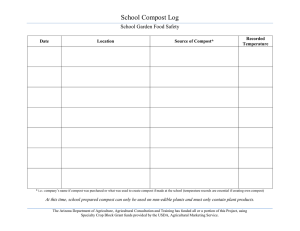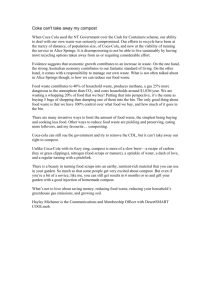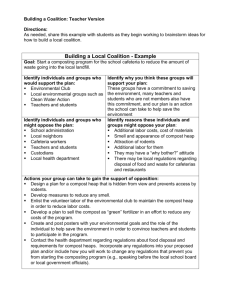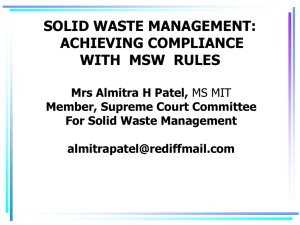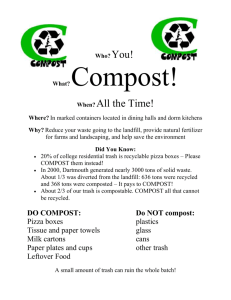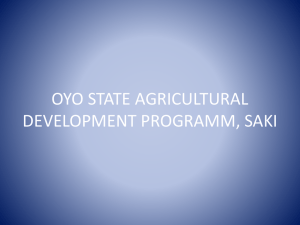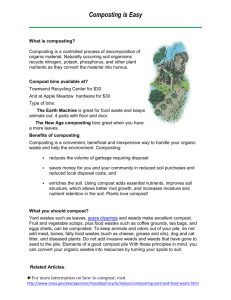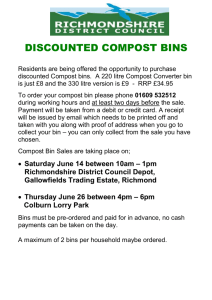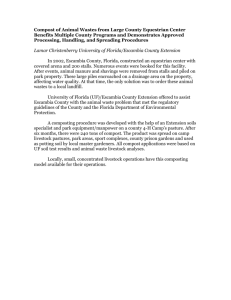170-Ajayi_olaoluwa_A.. - US Composting Council
advertisement
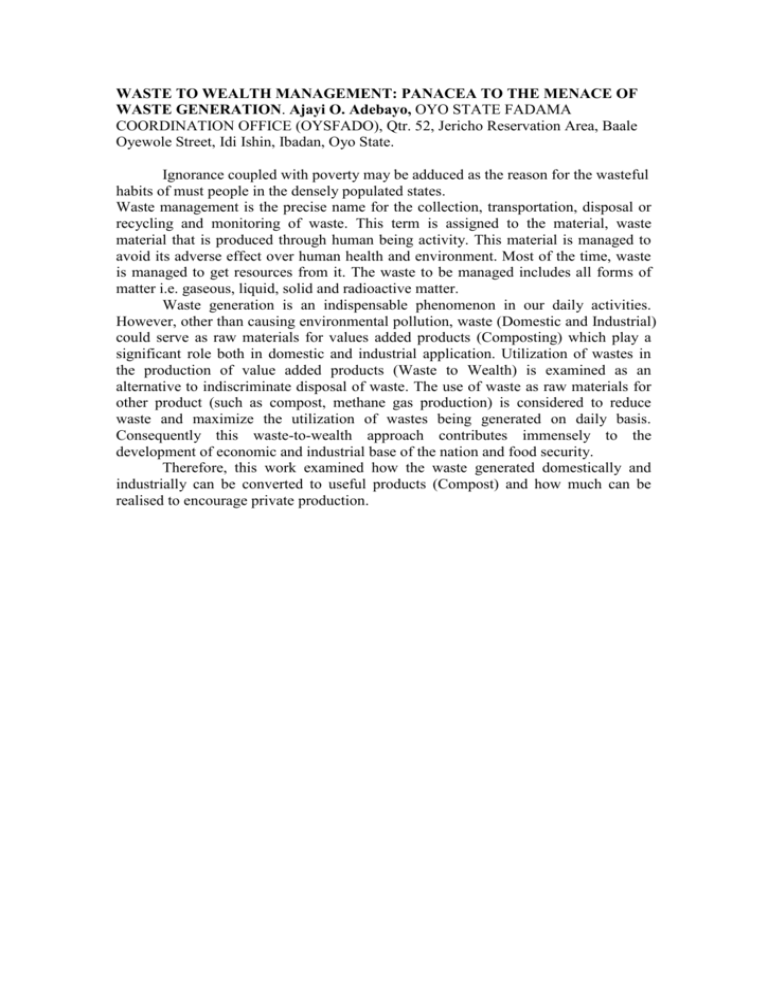
WASTE TO WEALTH MANAGEMENT: PANACEA TO THE MENACE OF WASTE GENERATION. Ajayi O. Adebayo, OYO STATE FADAMA COORDINATION OFFICE (OYSFADO), Qtr. 52, Jericho Reservation Area, Baale Oyewole Street, Idi Ishin, Ibadan, Oyo State. Ignorance coupled with poverty may be adduced as the reason for the wasteful habits of must people in the densely populated states. Waste management is the precise name for the collection, transportation, disposal or recycling and monitoring of waste. This term is assigned to the material, waste material that is produced through human being activity. This material is managed to avoid its adverse effect over human health and environment. Most of the time, waste is managed to get resources from it. The waste to be managed includes all forms of matter i.e. gaseous, liquid, solid and radioactive matter. Waste generation is an indispensable phenomenon in our daily activities. However, other than causing environmental pollution, waste (Domestic and Industrial) could serve as raw materials for values added products (Composting) which play a significant role both in domestic and industrial application. Utilization of wastes in the production of value added products (Waste to Wealth) is examined as an alternative to indiscriminate disposal of waste. The use of waste as raw materials for other product (such as compost, methane gas production) is considered to reduce waste and maximize the utilization of wastes being generated on daily basis. Consequently this waste-to-wealth approach contributes immensely to the development of economic and industrial base of the nation and food security. Therefore, this work examined how the waste generated domestically and industrially can be converted to useful products (Compost) and how much can be realised to encourage private production.
